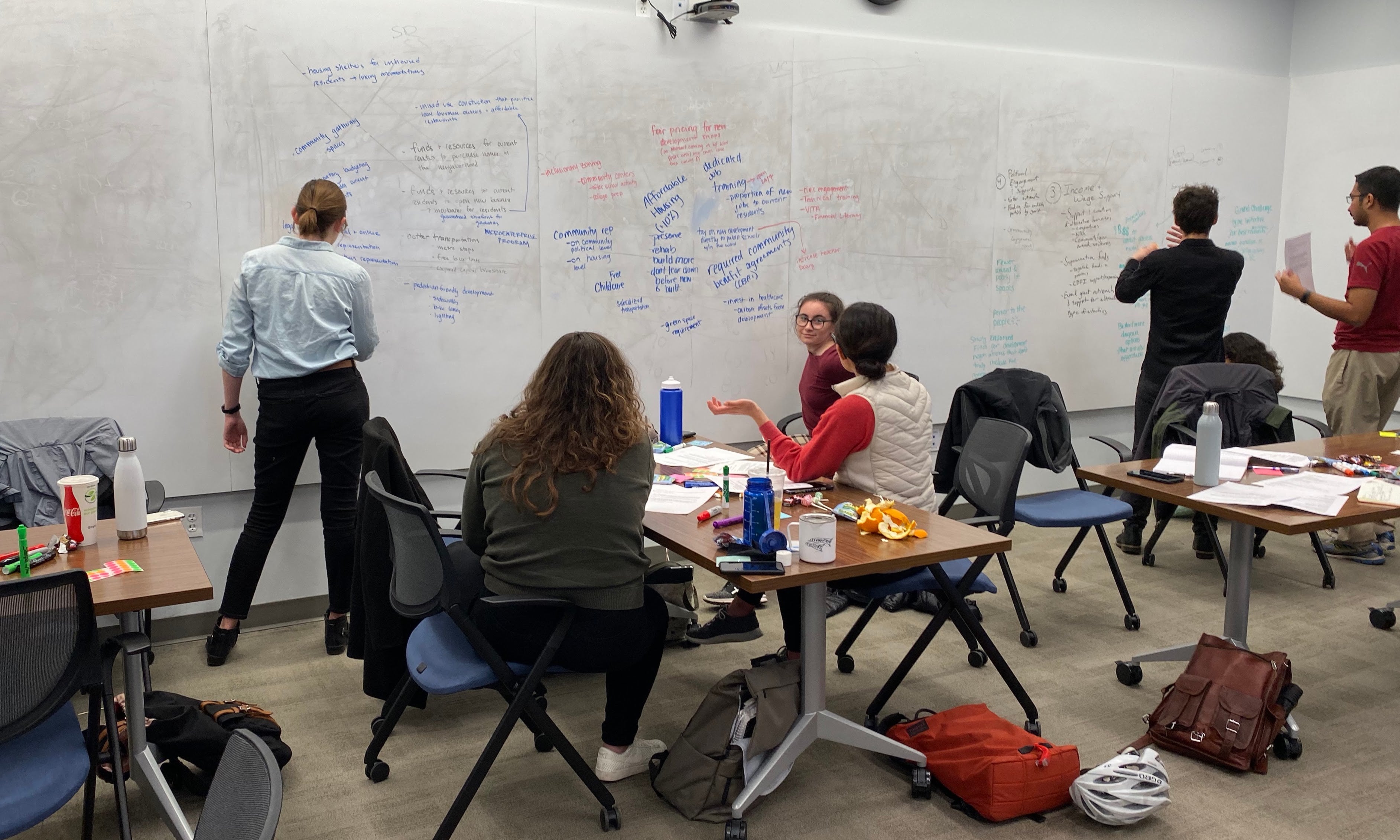Student Group Analyzes Impact of COVID-19 on Communities in DC
In early April of 2020, Policy Director of the DC Fiscal Policy Institute, Tazra Mitchell, and Director of Policy at the DC Policy Center, Kathryn Zickuhr, joined Policy Innovation Lab members in a video conference to discuss the impact of the coronavirus pandemic in Washington, DC. In particular, the speakers explored how federal and local policy responses to the pandemic would affect marginalized communities.
Today, we know very little about tomorrow. We are still in the midst of the crisis, they reminded us. We aren’t going to know the full extent of the impacts until the storm has passed.
We know that over 3.3 million people have filed for unemployment benefits with their local governments, but we don’t yet know how this will affect the racial wealth gap. We know the federal government may distribute checks to taxpayers, but we don’t yet know what impact it will have on families with mixed immigration status.
At first, this made me feel helpless. Was there nothing we could do? Were we supposed to simply sit and wait?
But then Tazra and Kathryn shared some of the work they have been doing. They were closely observing Congress and the DC City Council. Their teams were identifying important data sources to track over the coming months. They were publishing articles that shared their expertise of equitable fiscal policy. They were waiting, yes, but they were also watching and advocating.
Waiting, watching, and advocating.
During a previous Lab meeting, we learned about a design process called “The U.” It contains five steps that teams progress through as they develop new ideas. Unlike some models of design thinking, “The U Process” prioritizes moments of stillness. Entire stages of the process are dedicated to quiet activities of listening, observing, and sensing.
Some of us may have no choice but to be still right now. Perhaps, then, this is the best time to engage in quieter policymaking tools. We can bear witness while we wait.
We should watch our political leaders so that we can hold them accountable. We should watch out for our neighbors, so that we can take care of one another. And we should watch for occasions to use our voices and deep knowledge of how certain policies affect DC’s vulnerable communities. When there is an opportunity to speak up on behalf of justice, we should shout. Then, when the storm passes, we can dive into action.
But until then, we can wait, watch, and advocate.
